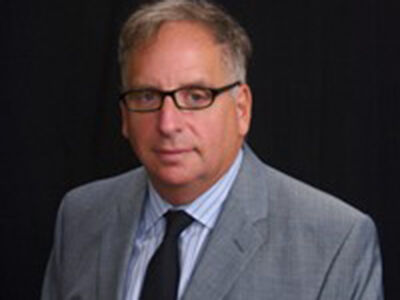UN shipping regulator advocates for industry emissions fee at COP30, despite Trump pushback
News > Top Stories

Audio By Carbonatix
7:48 PM on Monday, November 10
By ANTON L. DELGADO and JENNIFER McDERMOTT
BELEM, Brazil (AP) — The head of the International Maritime Organization said Monday he's continuing to “advocate and campaign” for global regulations to move the shipping industry away from fossil fuels, despite the United States and Saudi Arabia blocking new rules last month.
IMO Secretary-General Arsenio Dominguez spoke at one of the first side events at the United Nations climate negotiations beginning this week on the edge of the Brazilian Amazon. The side event discussed the shipping industry's efforts to slash carbon pollution by cutting back on fossil fuels.
Maritime nations were set to adopt the first global carbon fee on shipping last month at the IMO, the U.N. agency that regulates the international industry. They had already agreed on the regulations in April, so adopting them was widely expected to be a formality.
But after much pressure from U.S. President Donald Trump, along with Saudi Arabia and a handful of other countries, delegates decided to postpone the decision by a year. Trump said then that the U.S. “will not stand for this global green new scam tax on shipping.”
The regulations — or “Net-Zero Framework” — would have set a marine fuel standard that decreases, over time, the amount of greenhouse gas emissions allowed from shipping fuels. The regulations also would establish a pricing system that would impose a minimum fee of $100 for every ton of greenhouse gases emitted by ships above allowable limits.
Shipping emissions have grown over the past decade to about 3% of global greenhouse gas emissions as trade has grown. Most ships today run on heavy fuel oil that releases carbon dioxide and other pollutants as it’s burned.
Large ships last about 25 years, so the industry would need to make changes and investments now to slash its emissions. The International Chamber of Shipping, which represents over 80% of the world’s merchant fleet, advocated for the adoption of the regulations.
Dominguez told The Associated Press that despite the new rules being blocked, progress is continuing to be made on the shipping fee’s framework. He said he doesn’t blame the United States or other countries for thwarting the new regulations.
The U.S. is one of only four nations missing the climate conference, known as COP30, along with tiny San Marino and strife-torn Afghanistan and Myanmar.
In a full room of organizers called “maritime enthusiasts,” Dominguez said that the world shouldn't judge the IMO for October's setback and that “there’s no reason to be upset” given "how volatile the world is right now.”
“Don't think the IMO stops there, because we don't,” he said. “We need to learn from this experience, these circumstances.”
Dominguez said he remains positive that countries can adopt a fee on carbon pollution to clean up shipping, though “it is too early too go into any of the details.”
“I will go to everyone to engage proactively, in a fair manner, to work with all the member states (and) sectors that need to be part of the decarbonization,” he said. “Shipping is not going to decarbonize on its own.”
Prince Jaime de Bourbon de Parme, climate envoy for the Netherlands, said in a keynote address after Dominguez's opening remarks that his nation and many other countries were ready to adopt the regulations last month in London, which they had expected to celebrate at COP30.
He said that while the delay in many ways caused a “sense of failure," it is “equally important to take a cool headed, dispassionate view of what happened last month.”
“We see its merits for addressing greenhouse gases and contributing to a just and equitable transition,” he said. “We also continue to work constructively with all interested parties to overcome the barriers for its adoption next year.”
Shipping can go pollution free, said Andrew Forrest of Fortescue, the Australian green technology, energy and metals company, during the IMO side event.
“We’re not woke, we’re not green," Forrest said. "We’re a bunch of very pragmatic scientists and business people who are switching off fossil fuels.”
___
McDermott reported from Providence, Rhode Island.
The Associated Press’ climate and environmental coverage receives financial support from multiple private foundations. AP is solely responsible for all content. Find AP’s standards for working with philanthropies, a list of supporters and funded coverage areas at AP.org.
___
This story was produced as part of the 2025 Climate Change Media Partnership, a journalism fellowship organized by Internews’ Earth Journalism Network and the Stanley Center for Peace and Security.









